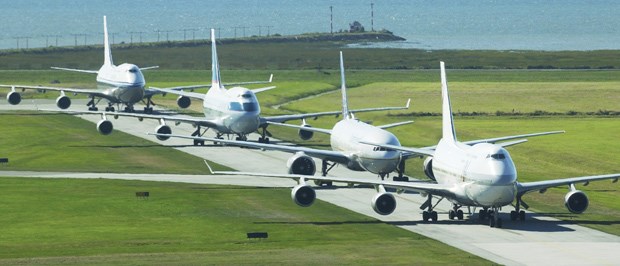Ten years after the tragedy of 9/11, one engineer is harnessing technology to make flying safer while a local rector is trying to peacefully unify practitioners of different faiths.
Engineer Don Ehrenholz was at the airport at 6 a.m. sipping a Tim Horton's coffee and absent mindedly watching a TV tuned to CNN when he saw the first plane hit the World Trade Center.
"I had to do a double take and say, 'was that real?'" recalls Ehrenholz, vice-president of operations at the Vancouver Airport Authority.
Approximately 17 minutes later, Ehrenholz watched a second airplane crash into the second tower.
As television audiences all over the world watched the twin towers collapse into the streets of New York, Ehrneholz saw planes all along the West Coast descend on Vancouver International Airport as all flights in North America were grounded.
"I believe about 8,000 unexpected passengers landed in Vancouver," he said.
Private and commercial airplanes clustered together on the runways, creating a sight Ehrenholz had never seen before and isn't likely to see again.
"There was a tremendous community response," he said, referring to the goodwill offered to stranded travellers.
As the runways cleared and the panic and confusion of the day began to ebb, Ehrenholz said he was faced with a single question: "How can we make our airport more secure?"
Over the last ten years, YVR has undergone an approximate $200 million security upgrade, including an automated baggage system, an x-ray system for bags and employee screening. Some of those upgrades, like x-raying baggage, was already in the works, according to Ehrenholz, but the process was likely accelerated after the tragedy of 9/11.
"We've tried to put it behind the scenes," Ehrenholz said of the upgrades. The goal was to maintain the aesthetics and efficiency of the airport, so many of the security functions are behind the walls, in the ceiling and under the floor.
Some of the technology being worked on, including computerized equipment that does the job of bomb-sniffing dogs, is eyebrow-raising, according to Ehrenholz.
"They [the United States] have a lab in the south and it's got more weird machines and gadgets than you could ever imagine," he said, referring to the "mad scientists" he encountered while researching airport security.
While Ehrenholz focuses on security, Margaret Cornish, rector at St. Alban's church, is planning an interfaith service this Sunday at 5 p.m. to mark the tenth anniversary of 9/11.
"It just seems significant that it falls on a Sunday," she said.
The service is scheduled to include a rabbi, reverend, pastor, and a nun, as well as a representative from Richmond's Sikh community.
Cornish said the evening of readings, prayers, and a variety of traditional music is very important, given the furor surrounding the Muslim prayer centre, often referred to as "ground zero mosque" in New York, as well as the mass murder in Norway last July.
"We're going to pray together and hope that takes us all forward," she said. "I hope Richmond becomes a real pocket of interfaith activity."
Cornish said she has a vision of the divergent faiths in Richmond coming together at the service, calling it, "A distillation of all the voices into one voice that's bigger than all our voices."
The event is open to the religious, as well as agnostics and atheists, according to Cornish, who said everyone is joined by the simple tenet, "Love your neighbour."
St. Alban's held a similar service to mark the mass murder allegedly fueled by religious hatred in Norway.



